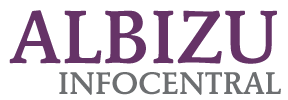Trending Now
The University | La Universidad
LATEST ARTICLES
En el Mes sobre la Concienciación del Autismo
La concienciación de una condición física para trabajar en favor de ella es labor diaria. Por tanto, unámonos como comunidad a ser una voz activa en el apoyo...
First Annual Albizu Alumni Reunion and Fair
Get ready to reunite, reminisce, and recharge at the First Annual Albizu Alumni Reunion and Fair 2024! 🎉 Dive into professional presentations, earn CEUs, and enjoy a day filled...



















